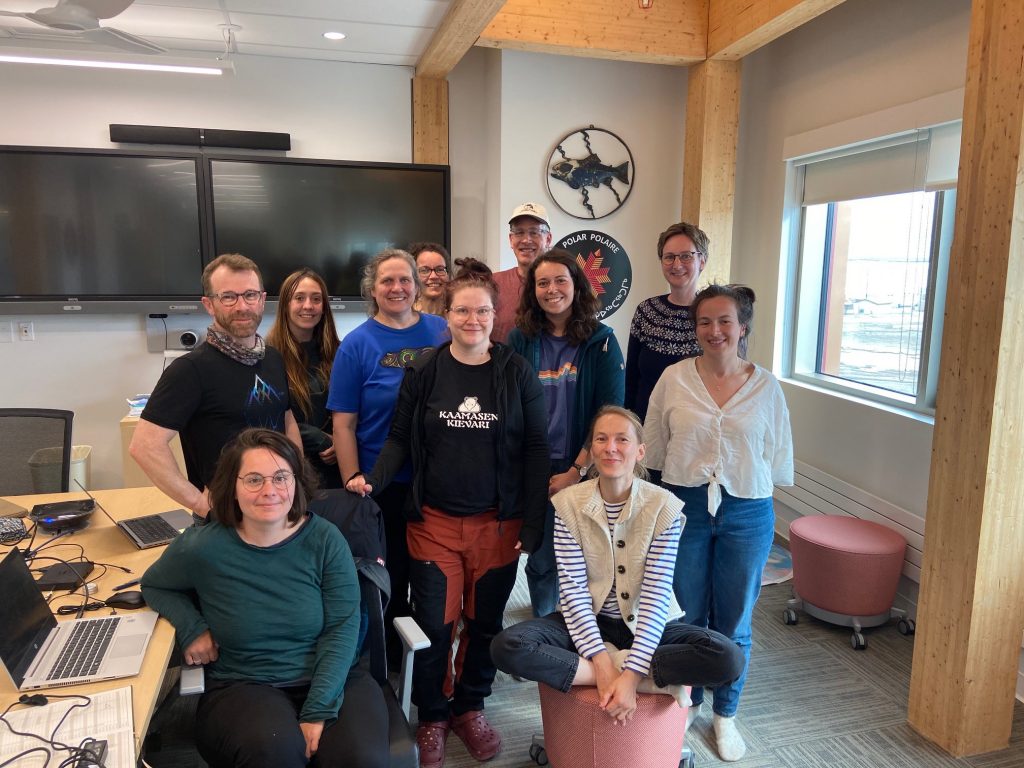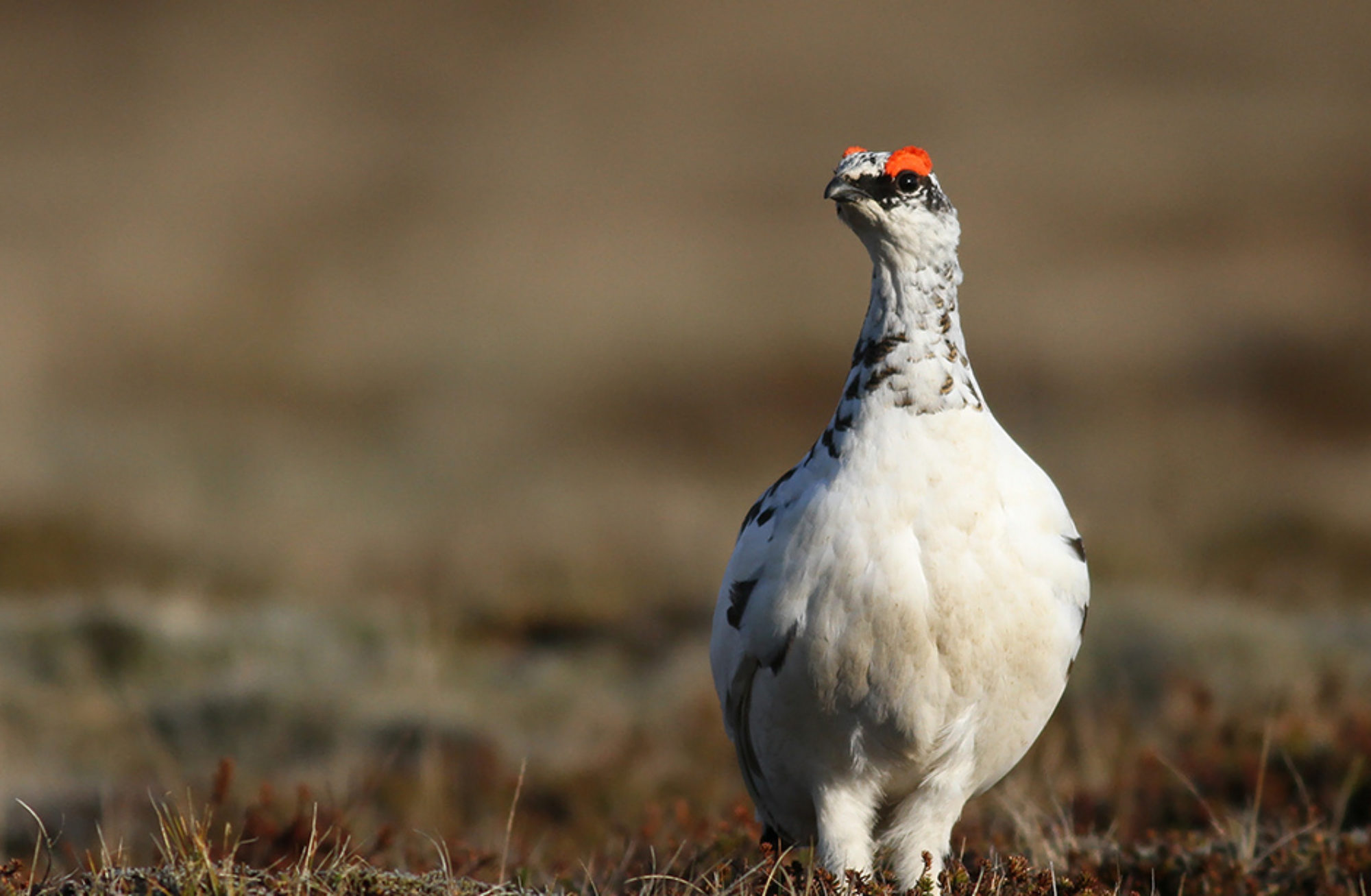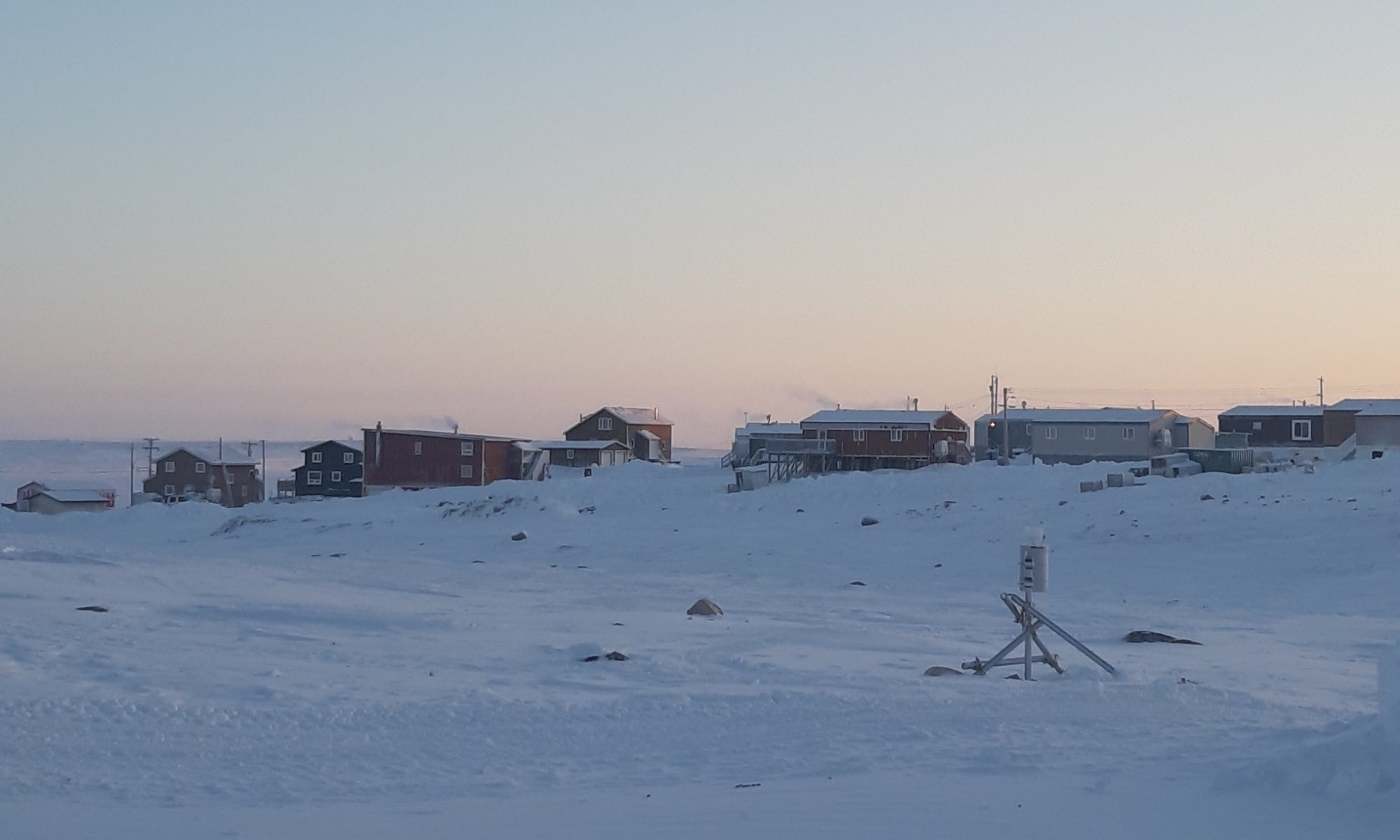The Herbivory Network 2023 meeting took place in Cambridge Bay, June 13-16, 2023. The meeting was hosted at the Canadian High Arctic Research Station (CHARS), a leading research facility run by Polar Knowledge Canada (POLAR) in the community of Cambridge Bay, Nunavut.

The aim of the meeting was to advance and discuss ongoing projects and start new collaborations that will contribute to a better understanding of the effects of herbivores on arctic ecosystems. The meeting included an open public lecture and a short field visit. Eleven researchers from five Arctic countries participated in person in the meeting, and online access was provided to other participants to some of the discussion sessions. Meeting participants also visited the research station and shared about various (contrasting) field contexts stimulated by the direct field experience of the High Arctic tundra.

Activities during the meeting
During this Herbivory Network meeting a strong emphasis was placed on presentations by participants on their current research projects. As well, a field session included the demonstration of an observational protocol for data collection. We also had a brainstorming session on the potential contribution of Herbivory Network researchers to the ICARP IV process and an open public lecture attended by community members in Cambridge Bay.
- Presentations by participants: during the meeting participants were encouraged to give a short presentation about their ongoing research, ideas for future collaboration or anything they wished to share with the network. Presentations from in-person and online participants covered topics including updates from the HN Soil Working Group, research on aapa mires, a systematic review on the effects of herbivore diversity on tundra ecosystems, trophic food webs across the Arctic, or the effects of fertilization and goose grazing exclosure on permafrost, among others.
- Coordinated protocols to assess the effects of herbivore diversity on tundra: within the IRF-funded project TUNDRAsalad that aims at investigating the effects of herbivore diversity on tundra ecosystems, we have designed an experimental and an observational protocol for data collection across tundra sites (https://herbivory.lbhi.is/tundra-exclosure-network-texnet/). WP leader Elina Kaarlejärvi successfully secured funding from INTERACT Transnational and Remote Access to implement the observational protocol in Cambridge Bay and other INTERACT stations across the Arctic. Data collection during the meeting was not possible because it was too early in the season, but we demonstrated the use of the protocol so that meeting participants can then implement the protocol at their study sites in summer 2023 or 2024. The demonstration included a visit to the field with discussions on the ground.
- Brainstorming session on contribution of HN to the ICARP IV process: the Fourth International Conference on Arctic Research Planning (ICARP IV; https://icarp.iasc.info/) lasting from 2022 until 2026 is a planning process that will engage Arctic researchers, Indigenous Peoples, policy makers, residents and stakeholders from around the world to collegially discuss the state of Arctic science, and the place the Arctic occupies in global affairs and systems. During the HN meeting participants unanimously acknowledged the significance and timeliness of the ICARP IV process and expressed their eagerness to contribute using a horizon scanning approach to identify research priorities in Arctic herbivory for the next decade. An online survey was developed and will be distributed to Herbivory Network members and to other interested researchers. The survey responses will be compiled and organised into thematic categories by a core working group. Subsequently, an in-person workshop is scheduled for 2024 to further refine the emerging themes and determine key action points. We anticipate that this collaborative process will be beneficial to ICARP’s objectives while fostering the generation of new knowledge in the field of Arctic herbivory.
- Public lecture: Prof. Esther Lévesque from the Université du Québec à Trois-Rivières, gave a talk titled “Greener Arctic: more shrubs, less berries?” where she presented her work with local communities in the Canadian Arctic. Community members in Cambridge Bay attended the meeting and discussed their knowledge on berries in the region.
Meeting agenda
[all times are local times, Mountain Standard Time, GMT-7]
Monday June 12, 2023 – arrival of participants to Cambridge Bay
Tuesday June 13, 2023
8:30-10:00 Presentations by participants on ongoing research projects and initiatives (online access to other participants)
10:30-12:00 Presentations by participants (cont.)
13:00-15:00 Coordinated protocols to assess the effects of herbivore diversity on tundra
15:30-17:00 POLAR Knowledge Canada and tour of CHARS
19:00-20:00 Open public lecture: Greener Arctic: more shrubs, less berries? By Prof. Esther Lévesque, Université du Québec à Trois-Rivières
Wednesday June 14, 2023
8:30-16:00 Coordinated protocols (cont.): implementation in the field
16:00-17:00 Presentations by participants (cont.)
Thursday June 15, 2023
8:30-15:30 Presentations by participants (cont.)
16:00-18:00 Brainstorming session on contribution of HN to the ICARP IV process
Friday June 16, 2023
8:30-10:00 Future collaboration within the network (online access to other participants)
10:30-12:00 Closing remarks and conclusions
Archived documents
- invitation to the meeting
- preliminary meeting agenda
- meeting report
Funding and support
Support for organizing the meeting was kindly provided by the Terrestrial Working Group of the International Arctic Science Committee (IASC). INTERACT Transnational Access facilitated participation of researchers to demonstrate and promote the use of a coordinated protocol for data collection. Polar Knowledge Canada provided in-kind support for the organization of the meeting.


